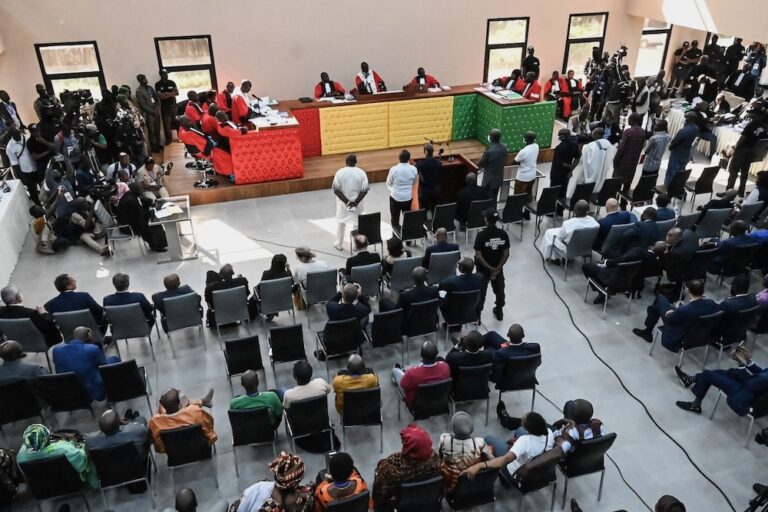Aissatou Boiro, director of the Office of the Treasury, was shot dead in her car on her way home from the Budget Ministry in Conakry, by unidentified men in military uniform.
(Human Rights Watch/IFEX) – 16 November 2012 – Guinean authorities should speedily and transparently bring to justice those responsible for the November 9, 2012 killing of the country’s treasury director, Human Rights Watch said today. Aissatou Boiro, director of the Office of the Treasury, was investigating a high-level corruption case, her co-workers told Human Rights Watch.
Boiro was shot dead in her car on her way home from the Budget Ministry in Conakry, Guinea’s capital, by unidentified men in military uniform, witnesses said. They said the men emerged from another vehicle that had halted and blocked Boiro’s car and then shot her twice. Boiro had received death threats, her friends and family reported.
“The killing of Aissatou Boiro is a more than just an individual tragedy,” said Corinne Dufka, senior West Africa researcher at Human Rights Watch. “The authorities need to hold those responsible to account for this horrific attack.”
Boiro was appointed treasury director by presidential decree earlier in 2012. Co-workers told Human Rights Watch that she was conducting an investigation into the alleged embezzlement of more than 13 million Guinean francs (US$1.8 million) from public funds.
Guineans and many observers had expressed hope that the 2010 elections, which brought President Alpha Condé to power, would be a democratic turning point in a country that has endured a series of authoritarian and abusive leaders. While Condé has taken some steps to address the serious issues of governance and security problems he inherited, progress toward greater respect for the rule of law has been undermined by lack of discipline within security agencies, inadequate support and protection for the chronically neglected judiciary, and corruption.
Guinea, a mineral-rich country, contends with high poverty rates, in part because of mismanagement of revenue from its vast natural resources. Those responsible for economic crimes are rarely investigated, much less held accountable, Human Rights Watch has reported. Boiro was described by many as a courageous and honest woman who sought to end corruption.
“The government should not surrender to acts of intimidation related to anti-corruption cases,” Dufka said. “Rather, this awful killing should signal the need to intensify the fight against corruption, which for decades has undermined development and respect for human rights in Guinea.”


